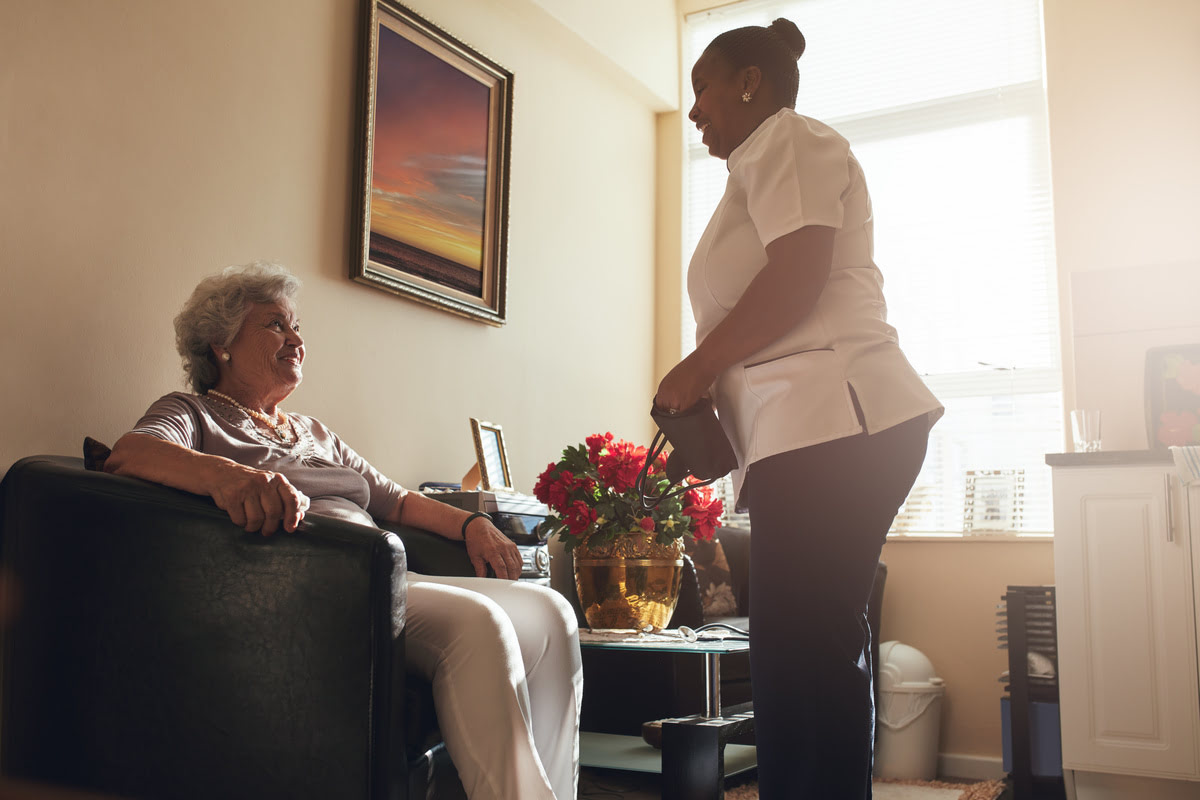May is Mental Health Awareness Month. If you are like most people, you have been quarantined in your home for over a year. This isolation has undoubtedly taken a toll on your mental health. In particular, Philadelphia seniors and those who live alone are that much more likely to suffer mental health problems. After all, we are a social species with a yearning to bond with others in-person rather than over screens through videoconferencing.
Tips for Caregivers
If you provide care for someone who is elderly or otherwise isolated, go out of your way to engage them in conversation throughout the entirety of your caregiving sessions. Even if you don’t have much to discuss, you can make small talk about the weather or current events to stimulate the individual you are caring for. Keep in mind, those who have no one to talk to have the potential to lose their phonetic abilities, meaning they will struggle to enunciate words following extended periods of silence. It will also help to engage in shared social activities with the patient such as board games, outings around town, and other group activities.
Even taking the senior citizen or other needy individuals in your life to the park or another social space for a picnic will lift his or her spirit, stimulate conversation and potentially lead to a conversation with Philadelphia community members. If the individual you care for expresses an interest in participating in a community activity such as a book club, a movie club, bingo sessions, or anything else involving others, volunteer to drive them to and from that event. Even if these social experiences only occur once every couple of weeks, they will provide the individual you care for with something to look forward to.

Mental Health Following the Pandemic
The COVID-19 pandemic has caused widespread loneliness and mental illness in Philadelphia, the United States, and the rest of the world. Studies show one-third of those who contracted the virus suffered mental health or brain health issue. However, even those who did not contract the virus are dealing with social isolation. In particular, those with minimal income and savings have suffered severe mental health problems throughout the pandemic. Though the rich also endured mental health issues during the pandemic, those with less money lack the financial means necessary to obtain assistance from a mental health professional. Furthermore, those lacking in financial resources have also spent comparably more time worrying about paying the rent, buying enough food, and paying for the cost of monthly utilities.
Anxiety and depression amongst Americans have doubled from 20% prior to the pandemic to 40% during the pandemic, making it crystal clear that it will take some time for our collective mental health to return to even a semblance of normal. Ameribest is here to help with the assistance of home health aides and other healthcare professionals who are happy to provide assistance including social and mental stimulation that improves your well-being or that of your loved one.
Ameribest is on Your Side
Our Philadelphia home health aides are here to provide essential assistance including social stimulation. Our team is friendly, talkative, and more than willing to engage you in conversation. If you suspect or know you or a loved one can benefit from the assistance of one of our home health aides, our skilled nurses, our physical therapy, or our occupational therapy, contact us today. Ameribest can be reached by phone at 215-925-3313 or by email at info@ameribest.org.


